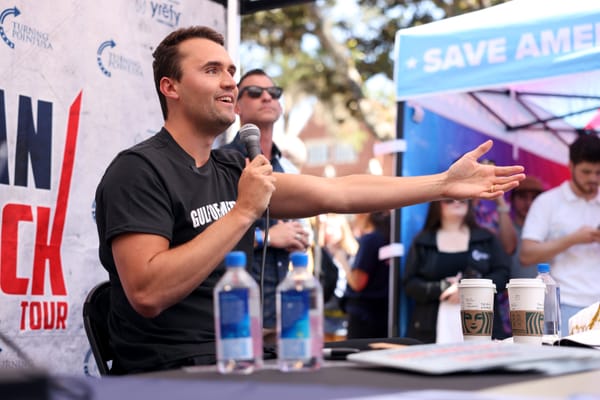E3: Wild horses return to Kazakhstan, degrowth is hot garbage, clean energy tech costs fall dramatically, and much more:
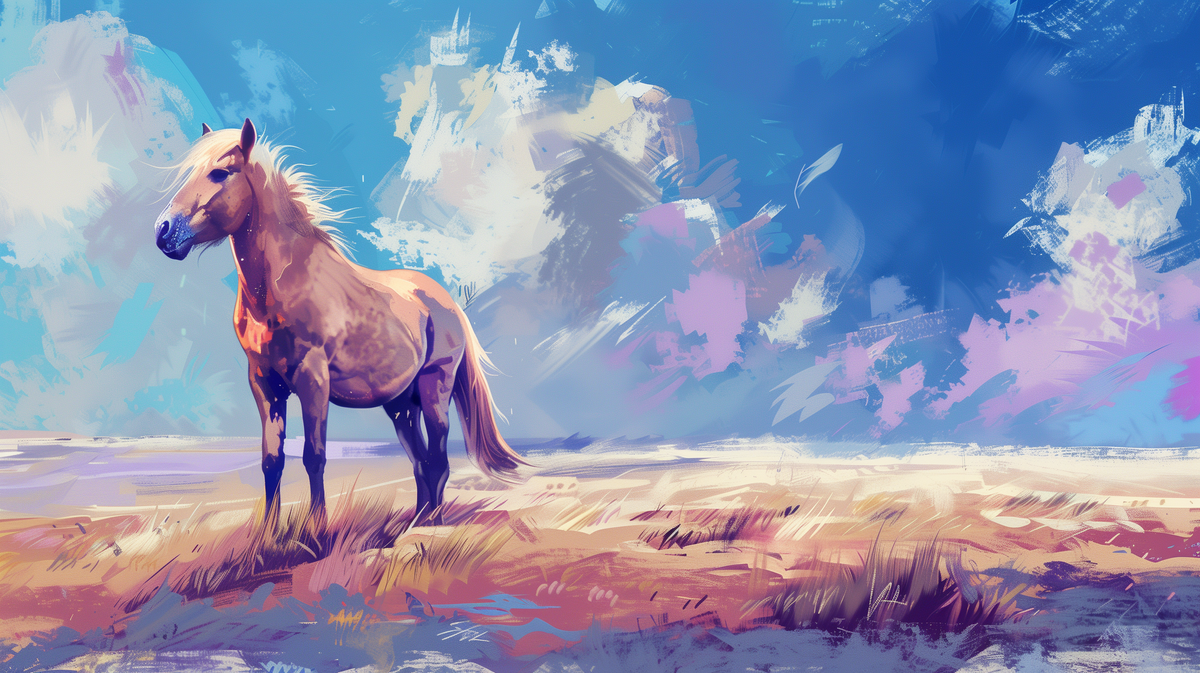
Tony Morley, June 18th, 2024

Welcome to The Up Wing, Edition 3, the best in progress and optimistic news, collated, curated, and delivered weekly. We report on the past, present, and future of human progress, progress studies, and optimistic news. We're pro-growth, free markets, classical liberalism, Enlightenment, science, technology, and a better future for all humanity. We're still in beta; hang in there.
Roughly 80% of our subscribers are currently free subscriptions; please consider supporting our mission and newsletter here: Support The Up Wing
Help support the project by liking and sharing our Edition 3 post on X/Twitter
A New rapid UTI test that cuts detection time from three days to 45 minutes awarded a $10m Longitude prize
The $10 million USD Longitude Prize has been won after a decade-long competition to find new tools to tackle the scourge of antibiotic-resistant superbugs. The new test, hailed as a ”game-changer,” can rapidly identify whether an infection is bacterial and identify the appropriate antibiotic in 45 minutes, rather than the standard three-day process.
“Without antibiotics, modern medicine as we know it is in real danger of collapse," — Dame Sally Davies, UK Special Envoy on Antimicrobial Resistance
"The £8m prize will support us to tailor the test for use with different kinds of UTIs and antibiotics, speeding up access for more patients,”

Secondary Source: The Guardian, Rapid UTI test that cuts detection time to 45 minutes awarded Longitude prize
RMI Report finds the cost of wind, solar, and battery technology is falling rapidly while installed capacity is growing dramatically
Researchers at the Rocky Mountain Institute, RMI have released a data set showing the remarkable progress made in the last decade toward reducing the cost of wind, solar, and battery renewable energy infrastructure.
"Cleantech costs fall by around 20% for every doubling in deployment and have fallen by up to 80% in a decade. Capital is pouring into cleantech. Getting to the first trillion of annual investment took decades; the second trillion will take only 4 years."


Solar panel prices have fallen by around 20% every time global capacity doubled
"One of the most transformative changes in technology over the last few decades has been the massive drop in the cost of clean energy. Solar photovoltaic costs have fallen by 90% in the last decade, onshore wind by 70%, and batteries by more than 90%."
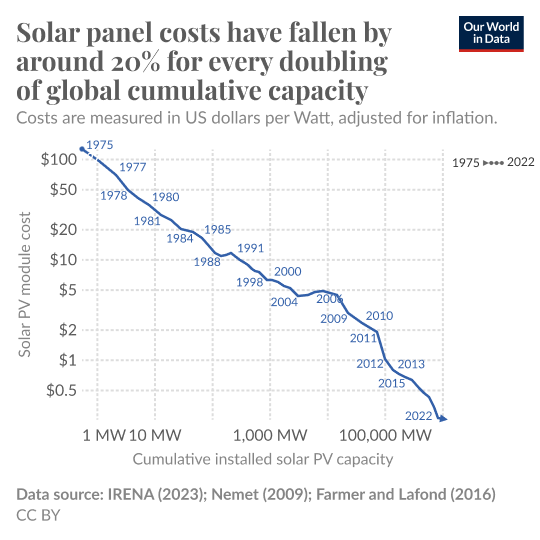

"We are creating new crops five-times faster" using AI, at a fraction of the cost of traditional breeding
"Using current and past data, such as from satellite imagery and temperature and rainfall readings, and combining that with future projections, ClimateAi aims to give farmers the most accurate possible, locally-tailored weather forecasts, from one hour to six months ahead."
“We are creating new varieties for diverse crops that are developed five-times faster and for a fraction of the cost compared to traditional breeding.”
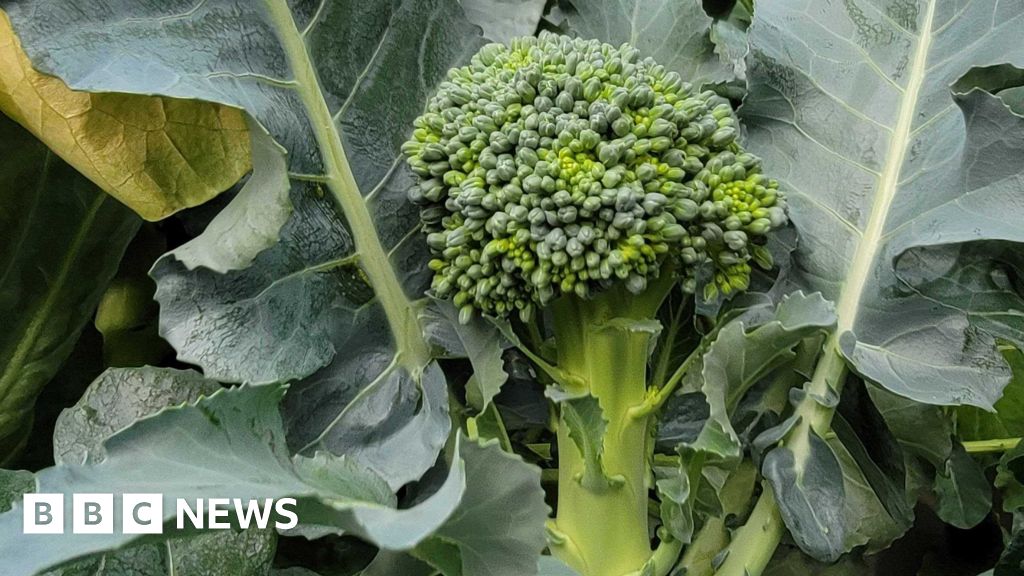
Three agrotech trends that may help feed the near-term future of civilization [long-form]
From new breeding techniques (NBTs) like CRISPR, to the precision agriculture of drones, robots, AI, and GPS — Kristin Houser and the team at Freethink take a deep dive into how humanity can boost crop yields and provide for a hungry civilization.
"It’s 2050. The global population has increased to nearly 10 billion, and while we’re still working to ensure every person on the planet has the opportunity to live their best life, we have eliminated one of humanity’s oldest foes: tonight, no one will go to bed hungry. Here’s how we’ll (maybe) do it."
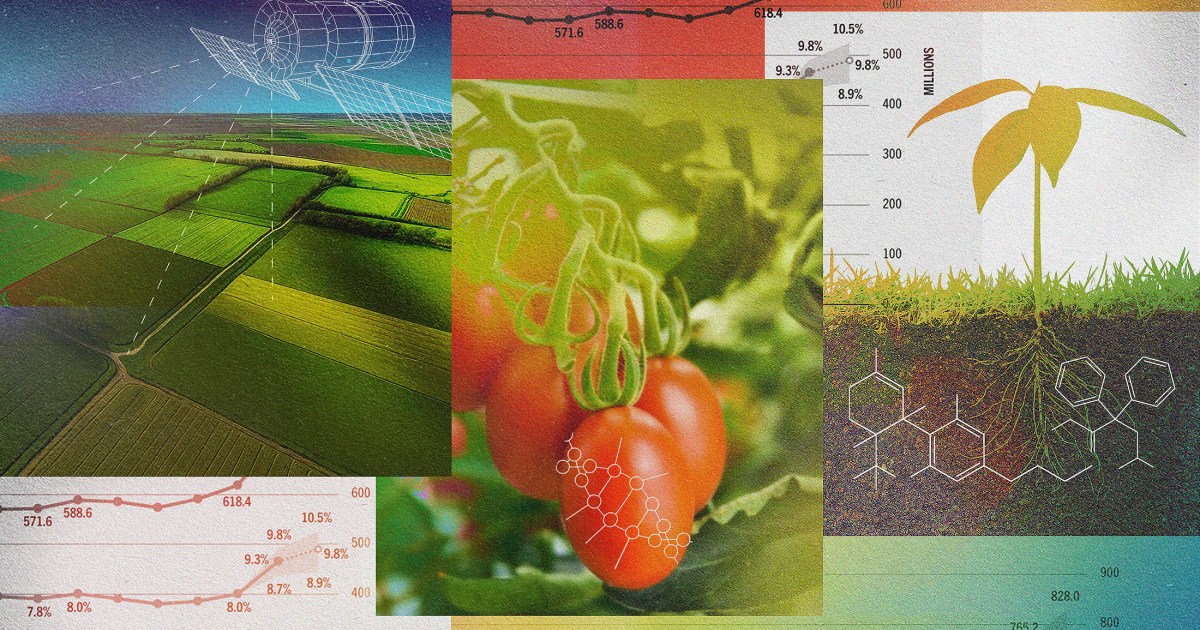
Harmful gases destroying ozone layer are falling faster than expected, study finds
"International efforts to protect the ozone layer have been a “huge global success”, scientists have said, after revealing that damaging gases in the atmosphere were declining faster than expected."
"Scientists say atmospheric levels of damaging gases peaked five years ahead of projections, as substances phased out"
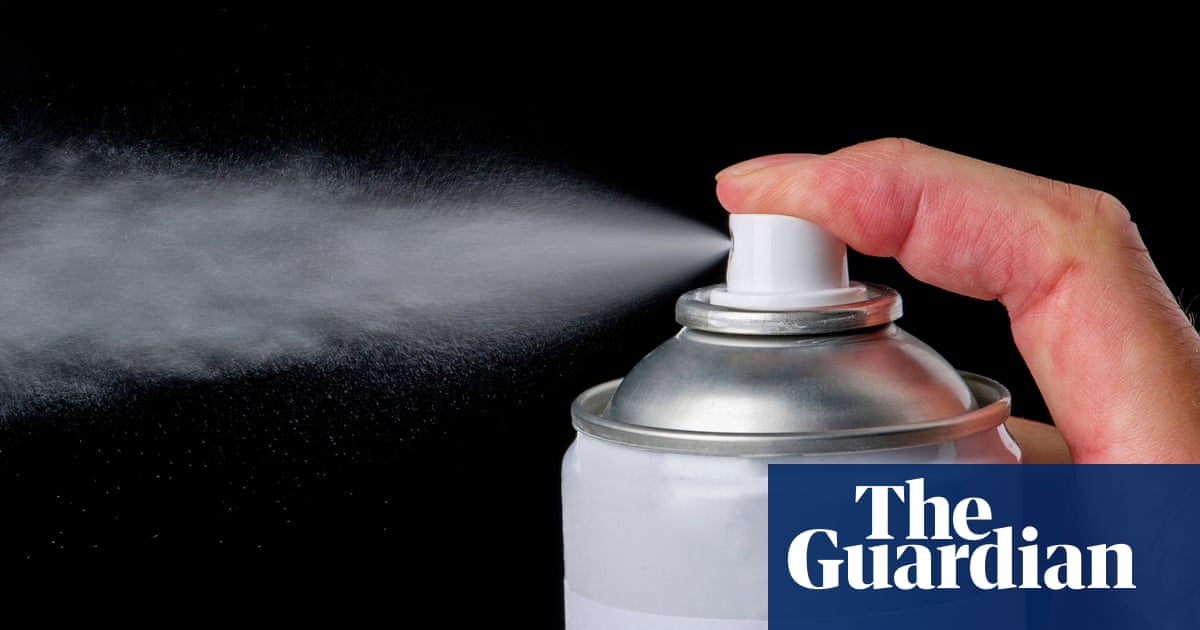
Root Source: https://doi.org/10.1038/s41558-024-02038-7, Nature Climate Change, Published: 11 June 2024
Global economic growth is slowly getting back on track, and is expected to continue to increase through 2025
"Things are looking up for the global economy, according to new data from the United Nations. Last week, the organization released its mid-2024 World Economic Situation and Prospects report, which forecasted that the world economy will grow by 2.7% this year, surpassing the 2.3% prediction made in January."

Root Source: World Economic Situation and Prospects as of mid-2024, May 16th, 2024
How personalized cancer vaccines could keep tumours from coming back [long-form]
"The same mRNA technology that quickly brought the world a vaccine for COVID-19 is now showing promise as a bespoke therapy for cancer."
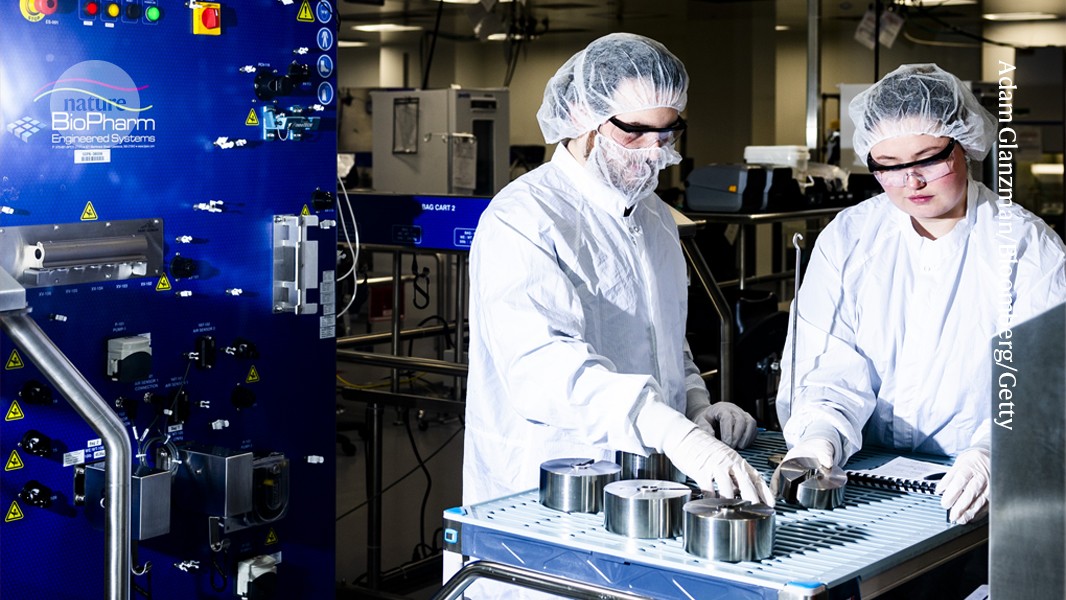
Real progress in the fight against trachoma: 96 million fewer people at risk from trachoma
Access to improved water and sanitation, better waste management, antibiotic therapy, and, for those with late-stage disease, surgery — have helped dramatically reduce the number of people exposed to the risk of contracting trachoma and the suffering of living with the disease.
The number of people at risk of trachoma has declined from 228 million in 2013 to 132 million in 2022; progress indeed, but significant challenges remain in reducing that number by another hundred million.


TerraPower and Gates break ground on a new $4B next-gen nuclear facility in Wyoming
“I put in over a billion, and I’ll put in billions more,” — Bill Gates
For the first time in nearly forty years, an American company has broken ground on a next-gen, advanced nuclear reactor, with the plan to provide commercial-scale electricity supply.
“I think this has helped open people’s eyes to the role that nuclear power does play today and can play in the future in addressing carbon emissions,” he said. “There’s tremendous momentum building for new nuclear in the U.S. and the potential use of a far wider range of nuclear energy technology than we’ve seen in decades.” — Gates
.jpg)
Wild horses return to the grassland steppes of Kazakhstan after an absence of 200 years
A team of scientists and conservationists have reintroduced seven Przewalski horses back to their native environment on the grasslands of Kazakhstan after an absence of roughly 200 years. The first seven horses will hopefully be part of a larger planned 40 horses to be reintroduced over the next five years.
Previous Success in Mongolia.
"In 2011, Prague zoo was involved in a reintroduction of Przewalski’s horses to Mongolia. The project, which involved nine flights of horses, continued until 2019 when the population stabilised, said Mašek, adding that there were now about 1,500 of the wild horses in Mongolia."
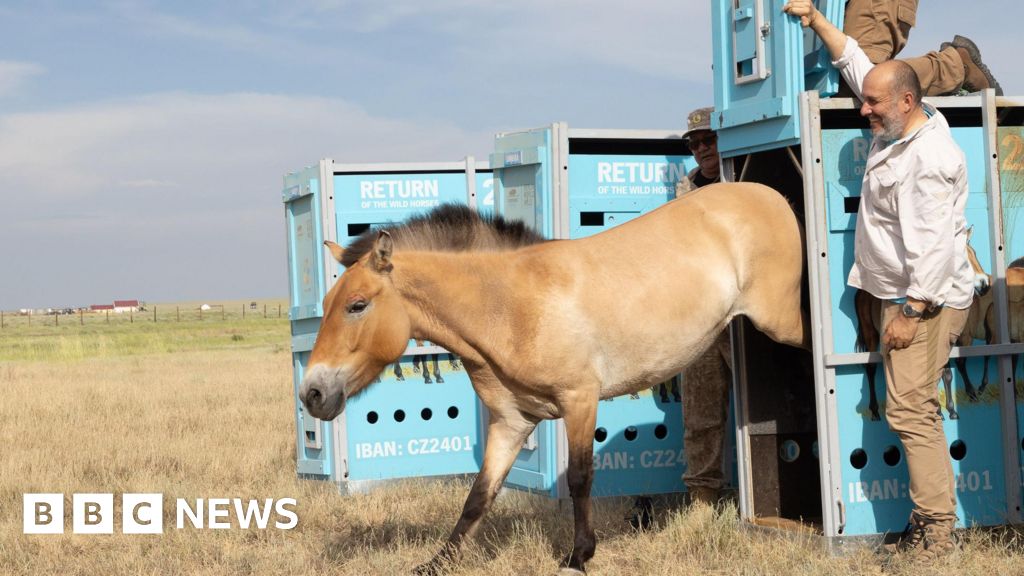
Przewalski's Horse, Kazakhstan, Václav Šilha/Prague Zoo: Frances Mao, BBC News
A new melanoma, hailed ‘Extremely impressive,’ halves the risk of patients dying or the disease returning
"The world’s first personalised mRNA cancer vaccine for melanoma halves the risk of patients dying or the disease returning, according to trial results that doctors described as “extremely impressive”."
“It’s terribly exciting,” Swanton said. “The new vaccine approach is another piece of the puzzle that will allow more patients to be cured, hopefully, or fewer patients to suffer disease relapse. Ultimately it will contribute to survival rates improving continually over the next decades and more.”
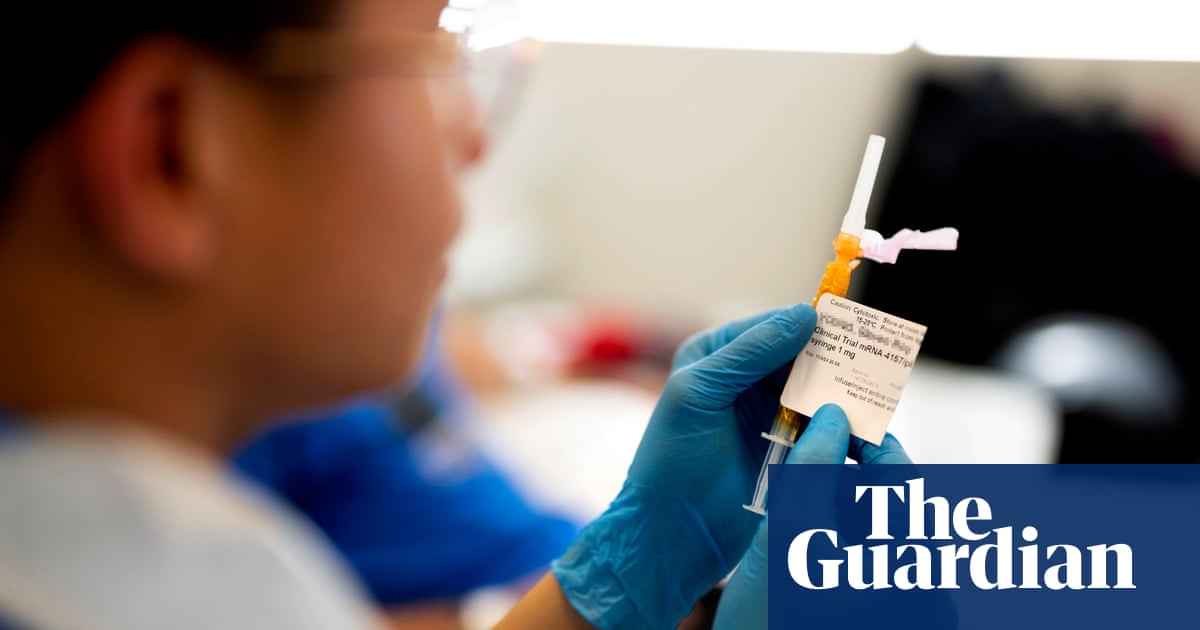
Progress Media:
"Because we live in an era when improving living standards — and near-constant economic growth — are pretty much all we’ve ever known, we tend to take them for granted." Does Improving the Planet Require Ending Economic Growth? — Kite & Key Media
Travel back to the past or forward to a degrowth future, and "You'd be sicker. You'd be hungrier. You'd be a lot poorer." Degrowth is progress as a wolf is in sheep's clothing. If you're not following the team at Kite & Key, you should be!
"Want to make sure we do more to help the world’s poor? No mechanism has ever done more for them than economic growth."

Progress Imprint:
How the World Really Works: The science behind how we got here and where we're going, Vaclav Smil
How the World Really Works is a deep dive into the complex systems that have driven global growth and human flourishing and the challenges facing civilization in the coming century. From energy systems and globalization to global—scale risks, Vaclav helps shape and expand the narrative on progress, growth, and risk beyond the superficial headlines. Vaclav Smil, author of 47 books, is a brilliant thinker and an acquaintance of The Up Wing, and we couldn't recommend his work with higher esteem.

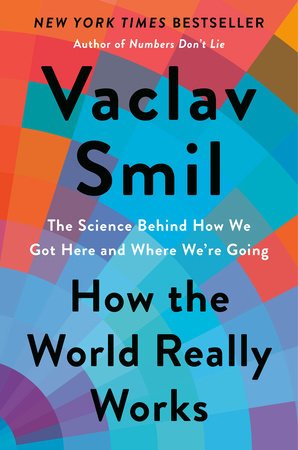
Also by Smil, Numbers Don’t Lie: 71 Stories to Help Us Understand the Modern World, Energy and Civilization: A History.
Factfulness: Ten Reasons We're Wrong About The World - And Why Things Are Better Than You Think
Factfulness by the late Hans Rosling, and co-authored by Anna Rosling Rönnlund, and Ola Rosling, was honestly one of the best books I've read on progress in the last decade. It's approachable and tells the story of progress in a manner that is accessible to anyone. It's both a great place to start your investigation into progress and a brilliant gift for someone who might be progress-curious.
The team at Factfulness and Gapminder also run two outstanding projects that are worth exploring: Gapminder Tools, "the most important graph in human history," and Dollar Street, and exploration of income and living standards.
“The Industrial Revolution saved billions of lives not because it produced better leaders but because it produced things like chemical detergents that could run in automatic washing machines.”



We're hoping to be more organized by Edition 10, currently Edition 3/10. We're still under construction, in beta mode, if you will [still a little 404 broken, with plenty of typos]. The site and newsletter will be updated in the following weeks. The UI/UX is going to get better; we have more great sections and content planned. Thank you kindly in advance.
The Up Wing Corporate
Want to get The Up Wing newsletter for your team? Help inspire and improve the well-being of your team by bringing The Up Wing to their inbox every week. Reach out to our team to help make it happen.
Copyright © 2024 The Up Wing, All rights reserved. The Up Wing is hosted, published, and dispatched by Ghost. If you enjoy our work, you can support The Up Wing with a premium subscription.















